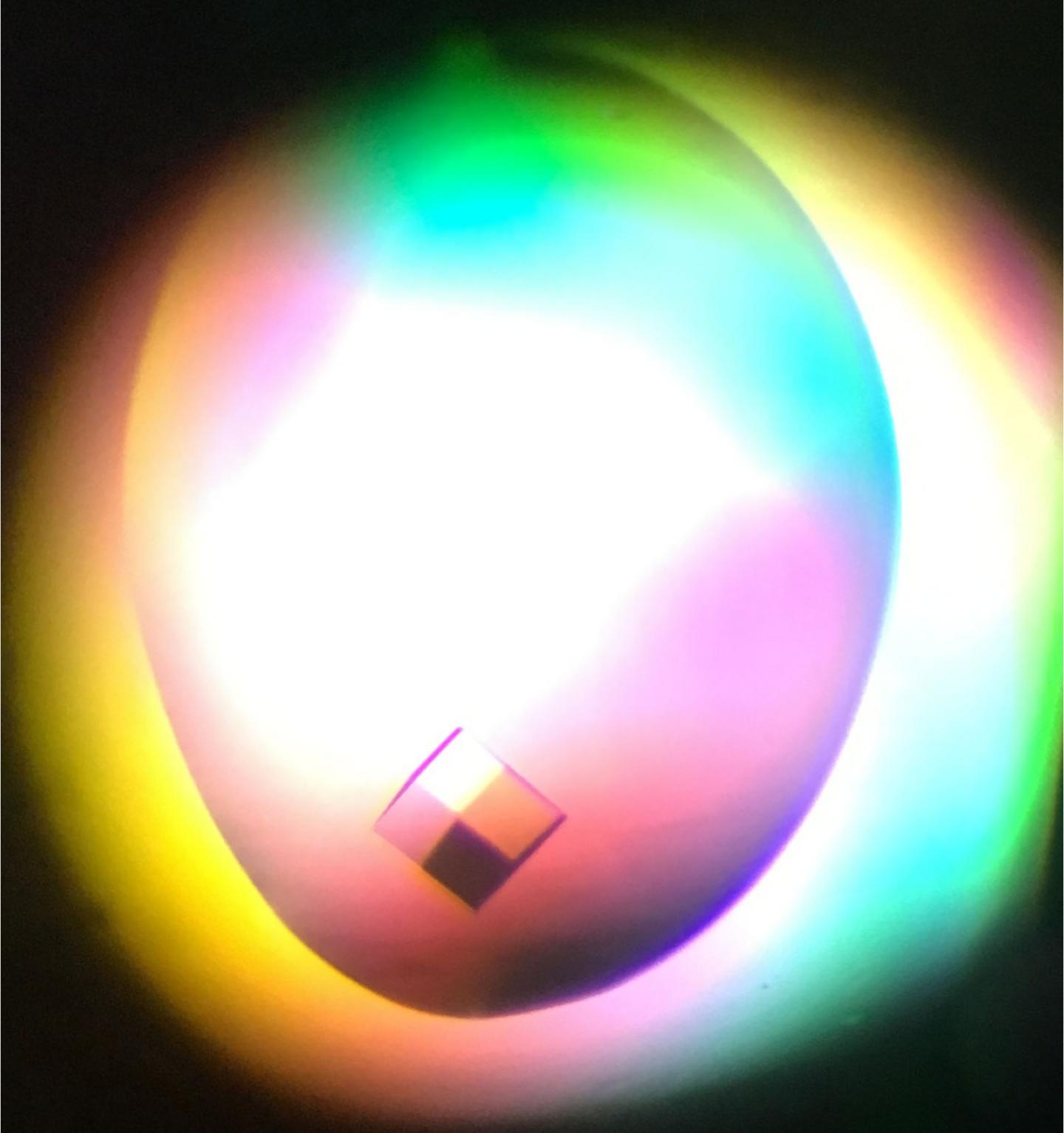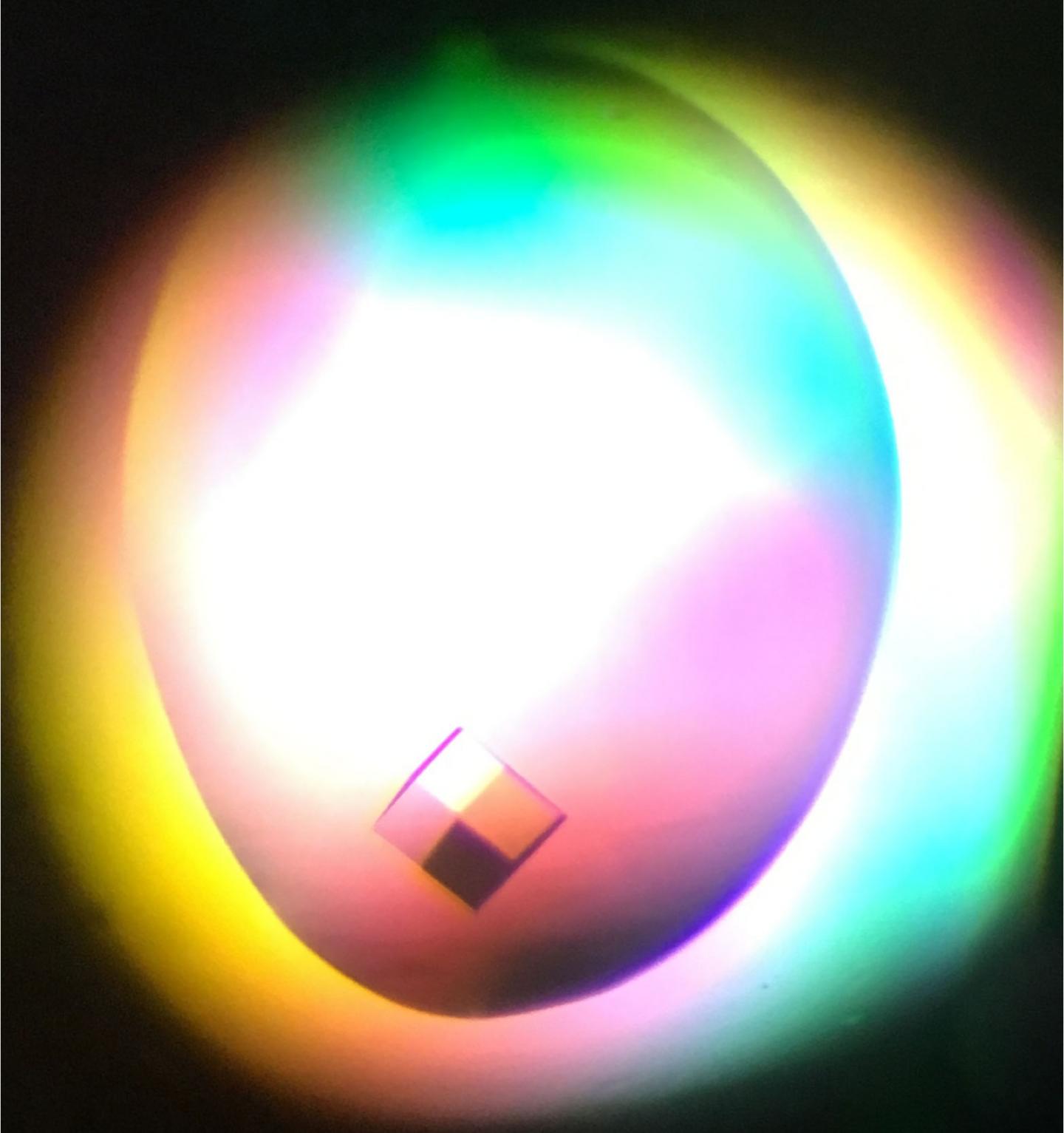
Credit: University of Warwick
Research by a team led by Dr Elizabeth Fullam, has revealed new findings about an enzyme found in Mycobacterium tuberculosis (Mtb) the bacterium that causes TB.
TB causes more deaths than any other infectious disease, including from HIV and malaria. In 2016 there were 10.4 million new cases of TB and 1.7 million people died. The rise in cases of TB that are resistant to the current therapies that are available means that there is an urgent need to develop new TB therapeutics.
Mtb is a highly unique bacterium and is enclosed within a distinctive cell wall that is comprised of unusual sugars and lipids which protect the bacteria from the host environment. Disruption of essential pathways involved in the assembly of the Mtb cell wall is an attractive approach for new TB drugs.
The team found a key structural motif in the tuberculosis N-acetylglucosamine-6-phosphate deacetylase (NagA) enzyme. Attacking this structural motif through the design and exploitation of new molecules will enable scientists to inhibit this critical pathway and kill TB.
Using the X-ray facilities at the Diamond Light Source, Harwell, they were provided with detailed molecular insights into how the NagA enzyme generates important precursors that are involved in Mtb cell wall biosynthesis and metabolism.
Dr Fullam, who is a Sir Henry Dale Fellow at the University of Warwick's School of Life Sciences, said: "Tuberculosis is a major global health problem and the current drugs that we use today are over 40 years old. It is therefore vital that we discover new therapeutic agents to combat TB. In our studies, we have investigated the role of an enzyme in Mtb called NagA. This enzyme is a promising drug target as it is at a crucial metabolic chokepoint in Mtb. This means that a molecule that stops the enzyme from working would be an effective strategy for a drug and therefore it is critical to understand its function.
"Our group has identified a weak point within this protein that we can target and will now enable us to design specific molecules to block its function"
Using a range of biochemical and biophysical checks to determine the substrate specificity for the Mtb NagA enzyme they found a unique structural feauture in the Mtb NagA enzyme.This has revealed a molecular image of the protein and provides a platform to allow scientists to design new drugs that will hopefully inhibit this vital pathway and kill TB.
The research 'Structural and functional determination of homologs of the Mycobacterium tuberculosis N-acetylglucosamine-6-phosphate deacetylase (NagA)' is published in the Journal of Biological Chemistry
###
For more information contact Nicola Jones, Media Relations Manager, University of Warwick [email protected] or 07920531221
Photo caption1 NagA protein crystals
Notes to Editors
Structural and functional determination of homologs of the Mycobacterium tuberculosis N-acetylglucosamine-6-phosphate deacetylase (NagA)' is published in the Journal of Biological Chemistry
DOI.1074/jbc.RA118.002597
Authors
Mohd Syed Ahangar, School of Life Sciences, University of Warwick, Warwick, Coventry CV4 7AL, United Kingdom
Christopher M. Furze, School of Life Sciences, University of Warwick, Warwick, Coventry CV4 7AL, United Kingdom
Collette S. Guy, School of Life Sciences, University of Warwick, Warwick, Coventry CV4 7AL, United Kingdom; Department of Chemistry, University of Warwick, Warwick, Coventry CV4 7AL, United Kingdom
Charlotte Cooper, School of Life Sciences, University of Warwick, Warwick, Coventry CV4 7AL, United Kingdom
Kathryn S. Maskew, School of Life Sciences, University of Warwick, Warwick, Coventry CV4 7AL, United Kingdom
Ben Graham, Department of Chemistry, University of Warwick, Warwick, Coventry CV4 7AL, United Kingdom
Alexander D. Cameron, School of Life Sciences
Elizabeth Fullam, School of Life Sciences, University of Warwick, Warwick, Coventry CV4 7AL, United Kingdom
Funding
This work was supported by a Sir Henry Dale Fellowship (to E. F.) jointly funded by the Wellcome Trust and Royal Society Grant 104193/Z/14/Z, Wellcome Trust Grant 201442/Z/16/Z (to E. F.), Royal Society Research Grant RG120405 (to E. F.), and Wellcome Warwick Quantitative Biomedicine Programme Institution Strategic Support Fund Seed Grant 105627/Z/14/Z; a Midlands Doctoral Training Partnership Studentship BB/M01116X/ 1 (to C. C.); this work was also supported in part by Warwick Integrative Synthetic Biology research technology platform (Grant BB/M017982/1)
You have received this email because the University of Warwick Press and Media Relations team believes its content is of interest and relevance to you as a member of the media.
We are committed to keeping your personal information safe and secure. Full details on how we use your personal data are given in our privacy notice.
If you would prefer not to be contacted by members of the Press and Media Relations team about news we believe is of professional interest to you, please email [email protected] to let us know.
Media Contact
Nicola Jones
[email protected]
07-920-531-221
@warwicknewsroom
http://www.warwick.ac.uk
Original Source
https://warwick.ac.uk/newsandevents/pressreleases/enzyme_discovery_could/





